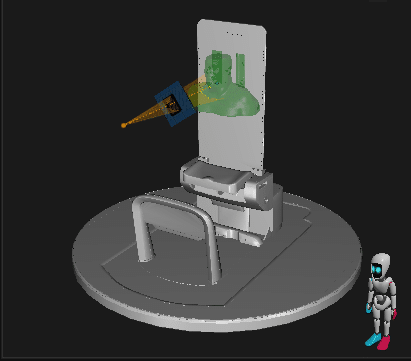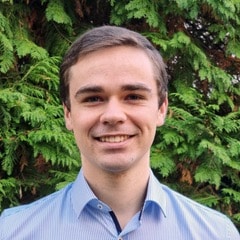RaySearch Laboratories have been conducting research and development within advanced radiotherapy treatment planning for over 20 years. Our treatment planning system RayStation has support for a wide array of modalities, including photons, electrons, boron-neutron capture therapy (BNCT), protons and light ions. A transition to upright treatments could provide both clinical and cost efficiency gains for all modalities, with particular advantages for treatments where upright treatments omit the need for large and expensive gantries (e.g. protons and light ions).
The transition to upright treatments must be preceded by updates to important parts of the treatment planning process, and research is needed both to address new challenges and to develop new techniques. This PhD project will mainly focus on proton, light ion and photon treatments.
For protons and light ions, a main topic is upright arc therapy, where the beam is delivered from a multitude of directions, preferably while the patient is rotated. Advancements on the accelerator side, such as multi-leaf collimated arcs and machines with fast energy switching can push this development forward, and versatile optimization algorithms for such accelerators have the potential to set a new state-of-the-art in ion treatments.
For photons, the machines have the potential to become even more compact and allow for faster collimation, and the possibility to translate the patient vertically while rotating opens for helical arcs.
New uncertainties arising in upright positions, including challenges regarding patient positioning and organ motion, should be accounted for in the treatment planning process. Extension and use of the integrated algorithms for robust optimization in RayStation will be part of this research.
The goal of the PhD project is to develop prototype versions of RayStation, which will be used to perform research studies within the realm of upright radiotherapy. The prototype development will include implementation of new mathematical optimization algorithms in combination with dose computation for photon, proton and ion therapy. The project will involve mathematical optimization, and computer science, as well as radiotherapy physics. Software development in languages such as C++, C# and Python will be an integral part of the project.
Within the doctoral network there will be continuous collaboration with other doctoral candidates, especially from GSI (Germany), CNAO (Italy) and Centre Léon Bérard (France), where the doctoral candidate will have longer or shorter secondments. A natural point of collaboration will include evaluation of the newly developed methods by retrospective planning on clinical patient cases.


